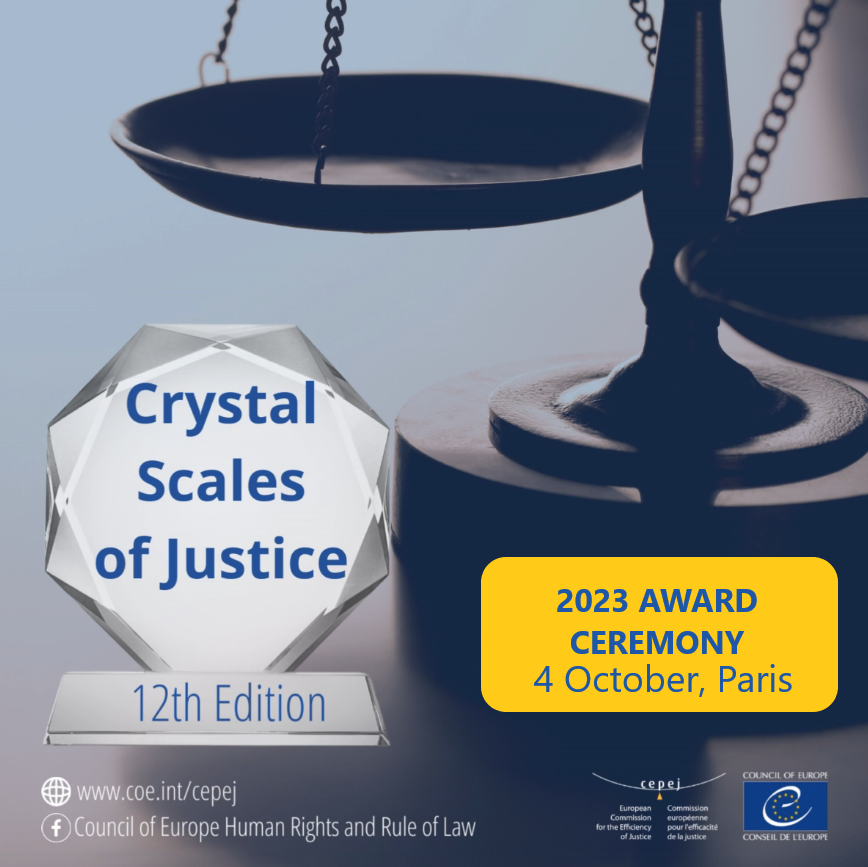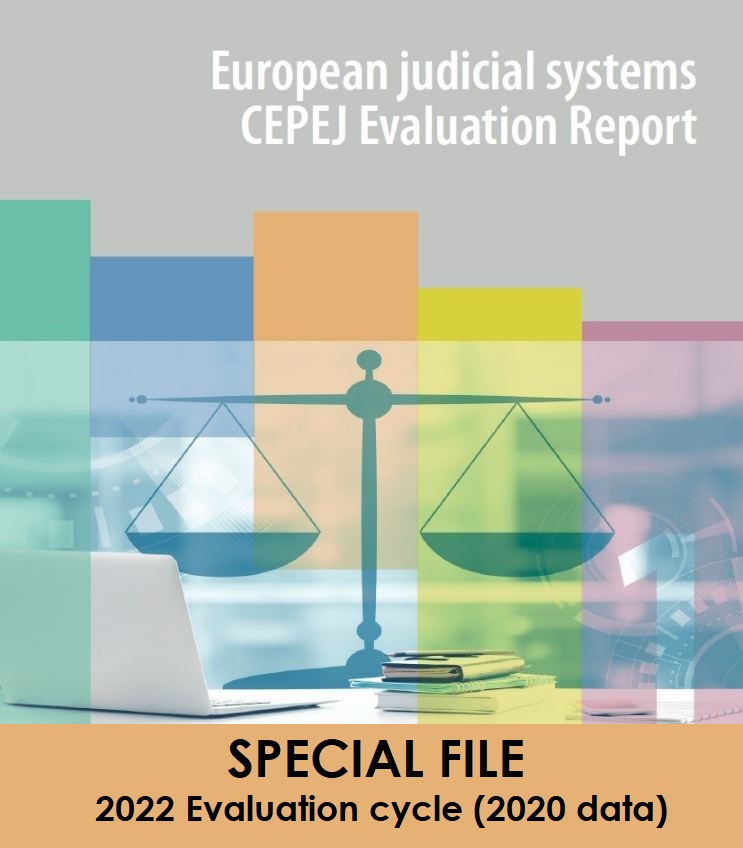Cyprus
 CEPEJ Member: Lena DEMETRIADES-ANDREOU
CEPEJ Member: Lena DEMETRIADES-ANDREOU
Supreme Court Judge
Deputy Member:
Costas PAMBALLIS
Judge at the Supreme Court
Cyprus - European Cyberjustice Network member (ECN)
Lena DEMETRIADES-ANDREOU
Supreme Court Judge
National Correspondent
Natassa PAPANICOLAOU
Legal Assistant
Supreme Court of Cyprus
NICOSIA
Pilot court
Not available.
Evaluation Exercise:
- Cyprus: Evaluation exercise - 2022 Edition
- Cyprus: Evaluation exercise - 2020 Edition
- Cyprus: Evaluation exercise - 2018 Edition
- Cyprus: Evaluation exercise - 2016 Edition
- Cyprus: Evaluation exercise - 2014 Edition
- Cyprus: Evaluation exercise - 2012 Edition
- Cyprus: Evaluation exercise - 2010 Edition
- Cyprus: Evaluation exercise - 2008 Edition
- Cyprus: Evaluation exercise - 2006 Edition
- Cyprus: Pilot scheme
Events
- Report - inventory of events organised in the framewrork of the 2011 European Day of Civil Justice (25 October) and Press review (Ajaratve.ge (25/10/2011) - Georgia, Journal online (25/10/2011) - Scotland)
Translations of CEPEJ documents (if available):
Not available.
Links to relevant Institutions
Resources
- Legal texts (Codes, laws, regulations etc.)
Cyprus government gazette - Case-law of the higher court/s
Supremecourt
Cylaw
Recent developments in the judicial field
Draft amendments to the criminal procedure have been tabled, concerning inter alia phone-tapping.
Mediation has been introduced as part of the civil procedure.
The most important bills/regulations deposited before the House of Representatives and enacted, or prepared and promoted in the last two years are as follows:
The Government on the proposal of the Ministry of Justice and Public Order adopted the bill amending the Evidence Law, which was pending before the House of Representatives since 2002 and supported its enactment. Important amendments were made particularly as regards the rules for hearsay evidence. These amendments encompassing the abolishment of the rule of non-adminissibility of hearsay evidence, under conditions, are expected to contribute to a more effective administration of justice.
The Criminal Procedure Law was amended aiming at simplifying the procedure of collecting small fines, thus saving time and public money.
Amendments to the Restoration of Offenders Law, regulated more leniently the conditions under which, previous convictions are struck off, especially as regards young persons up to the age of 21.
A new Law prescribing the rights of persons during arrest and detention and providing for the corresponding responsibilities of the police authorities was enacted.
In the field of Civil Procedure for elimination of delays in the Administration of Justice
The President of the Supreme Court has informed me that for the purpose of expediting court proceedings and eliminating delays in the administration of civil justice a practice has been established in the District Courts (the first instance Courts) whereby judges dispose part of their judicial time in fixing for directions, after completion of the pleadings, pending civil cases, on a particular day, at which an effort is made by counsel for the parties in their presence and with the assistance of the Court for reaching either an amicable settlement of the case or narrowing the issues so that the hearing becomes shorter.
For example in cases of claims for damages for personal injuries as a result of negligence an effort is made to bring the parties to an agreement either on the amount of pecuniary compensation or the apportionment of liability or both.
This procedure satisfies to some extent the various Recommendations of the Council of Europe on mediation.
As a result of this practice the majority of pending civil cases is finalised speedily by way of settlement. The delay which sometimes occurs in a few cases is due to the complexity of issues, the number of which however is minimal compared to those concluded as above.
In the field of Legislation
The Ministry of Justice in collaboration with the Attorney – General of the Republic are promoting a Bill in the House of Representatives which is now under consideration by the House, for the amendment of Article 17 of our Constitution, which protects the secrecy of correspondence and other Communications so that the amendment of our legislation on the matter becomes possible to enable the police inter alia to obtain information from the appropriate authorities regarding telephone or other communications of person suspected for the commission of serious crimes, such as homicide, trafficking of drugs, national security, public safety, the protection of health or morals etc.
Article 17 of our Constitution provides as follows:
Article 17
Every person has the right to respect for, and to the secrecy of, his correspondence and other communication if such other communication is made through means not prohibited by law.
There shall be no interference with the exercise of this right except in accordance with the law and only in cases of convicted and unconvicted prisoners and business correspondence and communication of bankrupts during the bankruptcy administration.
whereas Article 8 of the European Convention of Human Rights provides as follows:
Article 8
Right to respect for private and family life
Everyone has the right to respect for his private and family life, his home and his correspondence.
There shall be no interference by a public authority with the exercise of this right except such as is in accordance with the law and is necessary in a democratic society in the interests of national security, public safety or the economic well-being of the country, for the prevention of disorder or crime, for the protection of health or morals, or for the protection of the rights and freedoms of others.
The amendment of Article 17 of our Constitution will bring it in line with Article 8 of the European Convention of Human Rights and will make possible the amendment of our legislation accordingly.
Organisational chart of the system of justice
- Organisation of the Cyprus Judiciary (February 2011)
Collaborative workspaces:






